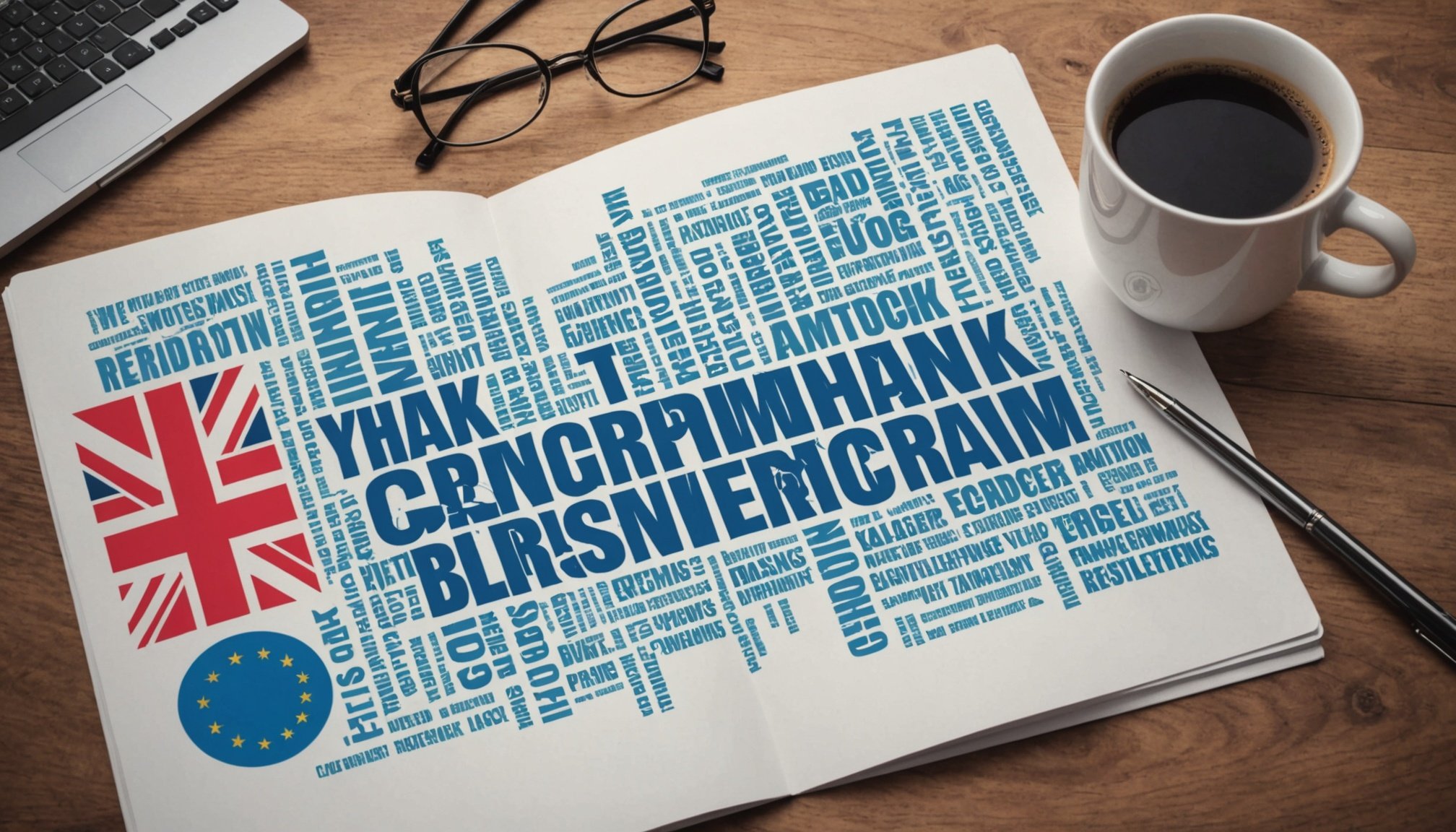Your Comprehensive Blueprint for UK Brands: Mastering Trademark Law to Protect Your Business Identity
Understanding the Importance of Trademarks for Your Business
When it comes to building and maintaining a strong brand, trademarks are among the most valuable assets your company can possess. A trademark is essentially a unique sign, symbol, or phrase that identifies your goods or services and distinguishes them from those of your competitors. For business owners, understanding and leveraging trademark law is crucial for protecting your brand identity and ensuring long-term success.
“Trade marks are one of the most valuable tools when it comes to brand protection,” notes Mary Bagnall, Partner in Intellectual Property at Charles Russell Speechlys. “The best level of protection is gained through registration of your marks, and, unlike most IP rights, if well looked after, registered trade marks can last forever.”[4]
Topic to read : Essential Legal Steps for UK Businesses to Effectively Address Confidentiality Breaches
Types of Trademarks You Can Register
Trademarks are not limited to just names and logos; they can encompass a wide range of elements that contribute to your brand’s unique identity. Here are some types of trademarks you can register:
- Word Marks: These are trademarks that consist of words, phrases, or slogans. For example, “Coca Cola” is a word mark.
- Figurative Marks: These include logos, images, or any other graphical representation. The Nike swoosh is a classic example.
- Sound Marks: These are trademarks that consist of sounds. For instance, the Intel chime is a sound mark.
- Colour Marks: Specific colours can be registered as trademarks if they are distinctive and associated with your brand. The “Cadbury Purple” is a well-known example[4].
- Shape Marks: The shape of a product or its packaging can also be registered. Think of the distinctive shape of a Coca Cola bottle.
- Smell Marks: Although less common, smells can also be trademarked if they are distinctive and can be represented graphically.
The Process of Registering a Trademark in the UK
Registering a trademark in the UK involves several steps that are designed to ensure your mark is unique and does not infringe on existing trademarks.
Additional reading : Mastering legal compliance: the ultimate guide to effectively overseeing subcontractors in uk construction projects
Conduct a Trademark Search
Before applying, it is essential to conduct a thorough search to ensure your chosen mark is not already registered or in use. This helps avoid conflicts and potential legal issues.
Prepare Your Application
Gather all necessary information, such as the mark you want to register and the goods or services it will represent. You also need a clear image of your logo or mark if applicable.
File Your Application
Submit your application to the UK Intellectual Property Office (IPO) or through an international system like the Madrid System. This can usually be done online, and you will need to pay the filing fee.
Examination by the Trademark Office
After submission, the IPO will examine your application to check for any conflicts with existing trademarks and ensure your application meets all requirements.
Publication for Opposition
If your application passes examination, it will be published for opposition. This period allows others to challenge your trademark if they believe it infringes on their rights.
Approval and Registration
If no opposition is filed, or any challenges are resolved in your favour, your trademark will be registered. You will receive a certificate of registration, giving you exclusive rights to use the mark[5].
Benefits of Registering a Trademark
Registering a trademark offers several key benefits that can significantly impact your business’s growth and success:
- Exclusive Rights: A registered trademark gives you the right to prevent others from using a similar or identical mark in the marketplace, reducing the risk of confusion among consumers.
- Long-Term Protection: Unlike patents, which typically last for 20 years, registered trademarks can last forever if renewed every ten years[2].
- Enhanced Brand Value: A registered trademark can increase the value of your brand, making it more attractive to investors and customers.
- Legal Protection: Registration provides a legal basis for taking action against counterfeiters and those who infringe on your trademark rights.
- International Protection: Registering your trademark in the UK can also pave the way for international protection through systems like the Madrid System.
Strategies for Effective Trademark Management
Effective trademark management is crucial for maintaining the integrity and value of your brand. Here are some strategies to consider:
Conduct Regular Trademark Searches
Regularly search for similar trademarks to ensure no one is infringing on your rights. This is particularly important in the digital age where new brands and products are emerging constantly.
Monitor Your Brand Online
Keep an eye on how your brand is being used online. This includes social media, e-commerce platforms, and other digital channels where your brand could be misrepresented or infringed upon.
Develop Comprehensive Brand Guidelines
Create clear brand guidelines that outline how your trademark should be used. This includes specifications for logo usage, colour schemes, and any other elements that contribute to your brand identity.
Engage in Risk Management
Identify potential risks to your trademark and have a plan in place to mitigate them. This could include legal action against infringers or strategies to prevent counterfeit products from entering the market.
Best Practices for Small Businesses and Startups
For small businesses and startups, protecting your brand identity is just as important as it is for larger companies. Here are some best practices to keep in mind:
Prioritize Early Registration
Register your trademark as early as possible to secure your brand’s identity and prevent others from using similar marks.
Seek Professional Advice
Consult with intellectual property lawyers who can provide tailored advice specific to your business needs. “Our trade mark lawyers can help you to register and protect your trade marks in the UK and internationally, with transparency on fees and competitive rates,” notes VWV[1].
Be Proactive
Do not wait until an issue arises to take action. Be proactive in monitoring your brand and taking steps to protect it.
Real-World Examples of Successful Trademark Protection
Several well-known brands have successfully protected their trademarks through strategic legal actions and management.
- Cadbury Purple: Charles Russell Speechlys achieved the registration of the iconic “Cadbury Purple” colour mark, demonstrating the importance of colour in brand identity[4].
- Nike Swoosh: The Nike swoosh logo is one of the most recognizable trademarks globally, and Nike has been vigilant in protecting its use.
- Coca Cola Bottle Shape: The distinctive shape of the Coca Cola bottle is a registered trademark, highlighting the importance of shape marks in brand protection.
Table: Comparing Trademark Registration Processes in Different Jurisdictions
| Jurisdiction | Registration Process | Duration | Renewal | International Protection |
|---|---|---|---|---|
| UK | File application with UK IPO | 4 months (if no objections) | Every 10 years | Via Madrid System or EU registration[2][3] |
| EU | File application with EUIPO | Varies depending on oppositions | Every 10 years | Automatic protection across EU member states[4] |
| International | File application through Madrid System | Varies depending on member countries | Every 10 years | Protection in multiple countries through a single application[2] |
Protecting your business’s intellectual property, particularly through trademark registration, is fundamental to its growth and success. By understanding the types of trademarks you can register, the process of registration, and the strategies for effective management, you can ensure your brand remains unique and valuable in the market.
As Birkett Long LLP emphasizes, “A brand is often a business’s most important asset. It distinguishes a business from its competition and acts as a guarantee of origin when it adorns a product or is associated with a service.”[2]
In today’s competitive and digital market, mastering trademark law is not just a legal necessity but a strategic imperative for any business looking to improve its brand identity, marketing efforts, and overall financial success. By following the best practices outlined in this comprehensive guide, you can safeguard your business’s innovations and identity, ensuring a strong foundation for long-term growth and success.










